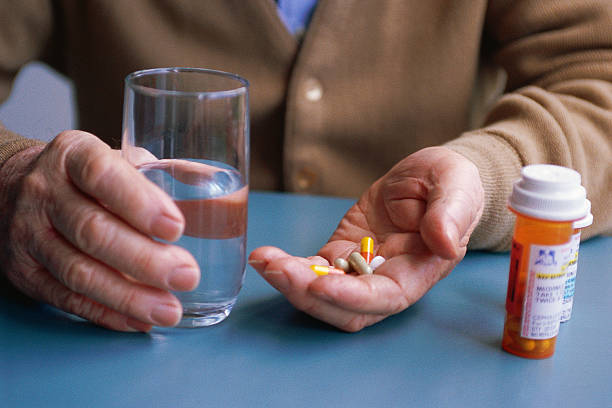Erectile dysfunction (ED) is a common condition that affects millions of men worldwide, characterized by the inability to achieve or maintain an erection sufficient for sexual activity.
Fildena 200 and Sildalist 120 is a medication used to treat erectile dysfunction (ED) in men. It contains sildenafil citrate, which is the same active ingredient found in Viagra, a well-known and widely used medication for ED.
As such, it’s natural for individuals to seek out various remedies or lifestyle changes to improve their sexual health. One such topic of interest is the potential relationship between milk consumption and erectile dysfunction.
In this comprehensive blog, we’ll delve into the scientific evidence behind this notion, exploring whether milk can truly impact ED.
Understanding Erectile Dysfunction:
Before delving into the potential role of milk in erectile dysfunction, it’s essential to understand the factors that contribute to this condition.
Erectile dysfunction can stem from various causes, including physical factors such as cardiovascular disease, diabetes, obesity, and hormonal imbalances, as well as psychological factors like stress, anxiety, and depression.
Lifestyle factors such as smoking, alcohol consumption, and poor diet can also play a significant role in the development of ED.
Causes of Erectile Dysfunction:
Erectile dysfunction can be caused by a combination of physical and psychological factors. Common causes include:
- Physical Factors:
- Cardiovascular Disease: Conditions such as atherosclerosis (narrowing of the arteries) can restrict blood flow to the penis, making it difficult to achieve an erection.
- Diabetes: High blood sugar levels can damage blood vessels and nerves, leading to erectile dysfunction.
- Hormonal Imbalances: Low testosterone levels or imbalances in other hormones can contribute to ED.
- Neurological Disorders: Conditions such as multiple sclerosis or Parkinson’s disease can interfere with nerve signals involved in the erectile process.
- Medications: Certain medications, including antidepressants, antihypertensives, and sedatives, can cause erectile dysfunction as a side effect.
- Psychological Factors:
- Stress and Anxiety: Psychological stressors, such as work-related stress or relationship problems, can affect sexual performance.
- Depression: Mood disorders can impact libido and sexual function.
- Performance Anxiety: Fear of not being able to perform sexually can lead to erectile dysfunction, creating a cycle of anxiety and worsening symptoms.
Symptoms of Erectile Dysfunction:
The primary symptom of erectile dysfunction is the inability to achieve or maintain an erection firm enough for sexual intercourse. Other associated symptoms may include:
- Reduced sexual desire (libido)
- Difficulty achieving orgasm
- Premature ejaculation
- Delayed ejaculation
It’s essential to differentiate between occasional instances of difficulty with erections and persistent erectile dysfunction, which may require medical evaluation and treatment.
Treatment Options for Erectile Dysfunction:
- Lifestyle Modifications:
- Healthy Diet: Eating a balanced diet rich in fruits, vegetables, whole grains, and lean proteins can improve overall health and sexual function.
- Regular Exercise: Physical activity improves cardiovascular health and circulation, which can benefit erectile function.
- Stress Management: Techniques such as relaxation exercises, meditation, or counseling can help reduce stress and anxiety related to sexual performance.
- Medications:
- Oral Medications: Drugs such as sildenafil (Viagra), tadalafil (Cialis), and vardenafil (Levitra) are commonly prescribed to improve blood flow to the penis and facilitate erections.
- Intracavernosal Injections: Medications injected directly into the penis can produce an erection within minutes.
- Testosterone Replacement Therapy: For men with low testosterone levels, hormone replacement therapy may improve erectile function.
- Therapies:
- Psychotherapy: Counseling or therapy can help address underlying psychological factors contributing to erectile dysfunction.
- Vacuum Erection Devices: These devices use suction to draw blood into the penis, producing an erection.
- Penile Implants: Surgical implants can be inserted into the penis to provide rigidity for sexual intercourse.
Milk and Erectile Dysfunction: The Myth:
The idea that milk consumption could influence erectile dysfunction may stem from several factors:
Nutrient Content: Milk is rich in essential nutrients such as calcium, vitamin D, and protein, which are vital for overall health, including cardiovascular function. Some proponents suggest that these nutrients may have indirect benefits for sexual health and erectile function.
Hormonal Effects: Milk contains hormones such as estrogen and progesterone, which are naturally present in dairy products. Some theories propose that these hormones could potentially affect testosterone levels in men, which in turn may influence sexual function and libido.
Artery Health: Some studies have suggested that consuming low-fat dairy products like milk may have a positive impact on cardiovascular health, including the health of blood vessels. Since adequate blood flow is essential for achieving and maintaining an erection, proponents argue that milk consumption could indirectly benefit erectile function by promoting better arterial health.
Scientific Evidence:
While the theories behind the potential benefits of milk for erectile dysfunction may seem plausible, the scientific evidence supporting these claims is limited and inconclusive. Several studies have investigated the relationship between dairy consumption and erectile function, but the results have been mixed.
Observational Studies: Some observational studies have found associations between higher dairy intake and a lower risk of erectile dysfunction. However, these studies often rely on self-reported dietary data, which can be subject to recall bias and other limitations.
Interventional Studies: Interventional studies specifically examining the effects of milk or dairy consumption on erectile function are scarce. Those that do exist have yielded conflicting results, with some suggesting a potential benefit and others finding no significant association.
Mechanistic Studies: Research into the potential mechanisms by which milk or dairy products could influence erectile function is also limited. While some studies have explored the effects of specific nutrients found in milk, such as calcium or vitamin D, on vascular health, the direct impact on erectile function remains unclear.
Conclusion:
In conclusion, while the idea that milk consumption could impact erectile dysfunction may have some theoretical basis, the scientific evidence supporting this notion is limited and inconclusive. While milk is undoubtedly a nutritious beverage that can contribute to overall health, its specific role in sexual function and erectile dysfunction remains uncertain.
Rather than focusing solely on milk consumption as a remedy for erectile dysfunction, individuals concerned about their sexual health should prioritize a holistic approach that includes maintaining a healthy lifestyle, addressing underlying medical conditions, and seeking guidance from healthcare professionals.
Additionally, more rigorous research is needed to better understand the potential relationship between milk consumption and erectile function and to determine whether any causative effects exist.








+ There are no comments
Add yours